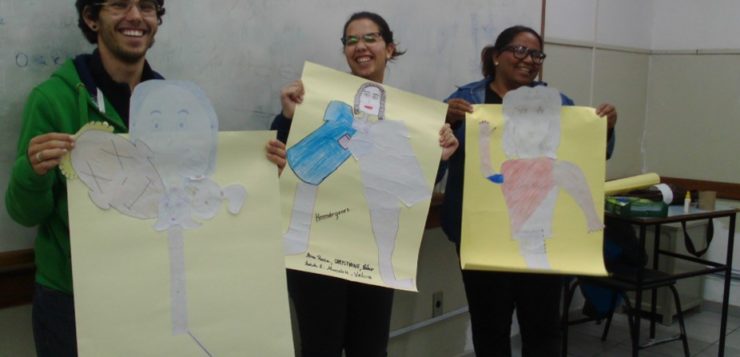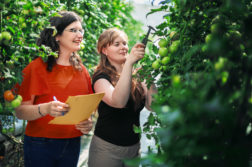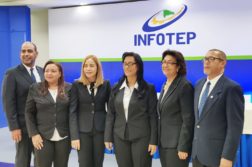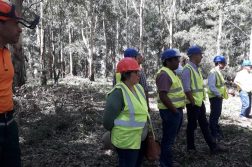Dr. Regina Lianda graduated from the first The VET Teachers for the Future -professional certificate programme for Brazilian teachers from Häme University of Applied Sciences (HAMK) in 2015. Since then she has been developing activating and engaging teaching methods, especially project-based learning (PBL), in Instituto Federal de Educação, Ciência e Tecnologia do Sudeste de Minas Gerais, Chemistry Centre, in Brazil. She is also working as a teacher educator, team leader and researcher.
This blog post tells about the chemistry teachers and their students who study PBL in the course of chemistry in the guidance of the team leader Dr. Regina Lianda. Regina has ministered many mini-courses and lectures about the PBL, but this time she led a long-term pedagogical experiment and training in PBL. The experiment was new for the students too, because earlier Regina taught them only organic chemistry, not particularly methods of learning. In addition to new pedagogy, teachers and students studied co-operative learning in groups; team work and team facilitation.
One of the first activities was named “Human Body Dynamics” – focusing on interdisciplinary group work (an assignment shared by teachers Marize Lyra Silva Passos (IFES), Sheylla Chediak (IFRO) and Azenaide Abreu Soares Vieira (IFMS) from The VET Teachers for the Future -programme). In this rehearsal, students of the courses of food technology and nutrition joined the group of chemistry. As a funny warming-up rehearsal, all four (4) groups made a joint drawing of the human body as a group work: each group participant drew one member of the human body (e.g. head, trunk, right upper limb, left upper limb, right lower limb, left lower limb) and at the end, the separated, individual drawings were combined. However, all four groups had different instructions. Group 1 did not communicate at all. Group 2 talked just about whether the design of the body would be simple or not. Group 3 communicated about the work more in detail, for example, about the size of human body they are drawing. Group 4 communicated openly, for instance, about which member of the body each one draws. Afterwards the groups reflected the importance of open communication and shared planning in collaborative group work.
Next, the team leader presented the characteristics of the PBL to the groups, such as building collaborative knowledge, individuality, sharing and trust (trust between teachers and students, students and students and trust on the learning process). It was also discussed how important it is to develop of skills to work and manage in teams and encourage students to make decisions and participate on planning process. In PBL, students take responsibility of the results and they inform the community about the project; they act as counselors and establish new partnerships. The process of PBL can include problem solving or project development. Variety of assessments methods as well as use of technological tools support the learning process.
Then the groups practiced group dialogue on the characteristics of PBL, for instance the meaning of leadership, sharing, commitment and curiosity. Everybody was encouraged to commented and discuss freely. It was a nice and exciting assignment, and the students liked it very much, as well as the teachers. Also the group dynamics and formation was discussed openly. The students concluded, that it is important to learn to co-operate with all. After the practices, the good learning atmosphere and group spirit was evident, also in the following classes. Studying PBL seemed to bring great motivation to all, and raised many innovative visions about the education in future.
The students also compared more traditional learning methods to PBL. They read the article “8 Essentials for Project-Based Learning” (Larmer & Mergendoller 2012). Then they discussed about the differences between conventional and PBL. Regina Lianda has also published articles herself with her team about pedagogical experiments, for example about applying the project-based learning (PBL) in the course of organic chemistry by studying honey (Lianda et al. 2016; Lianda et al. 2016; Lianda & Joyce 2018). The latest publication is about implementation of the PBL methodology through interdisciplinary study of edible mushrooms (Lianda et al 2018).





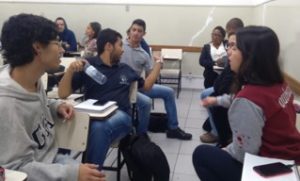

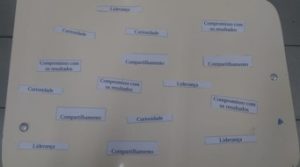

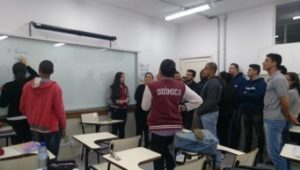







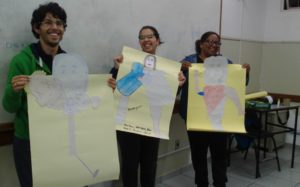
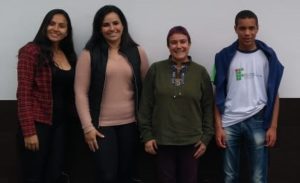
Regina Lucia Pelachim Lianda
Izabela Azevedo Santos
Aline Aparecida Campos
Vitor Roberto de Oliveira
Instituto Federal de Educação, Ciência e Tecnologia do Sudeste de Minas Gerais, Barbacena Campus, Chemistry Centre, Brazil
email: regina.lianda@ifsudestemg.edu.br

